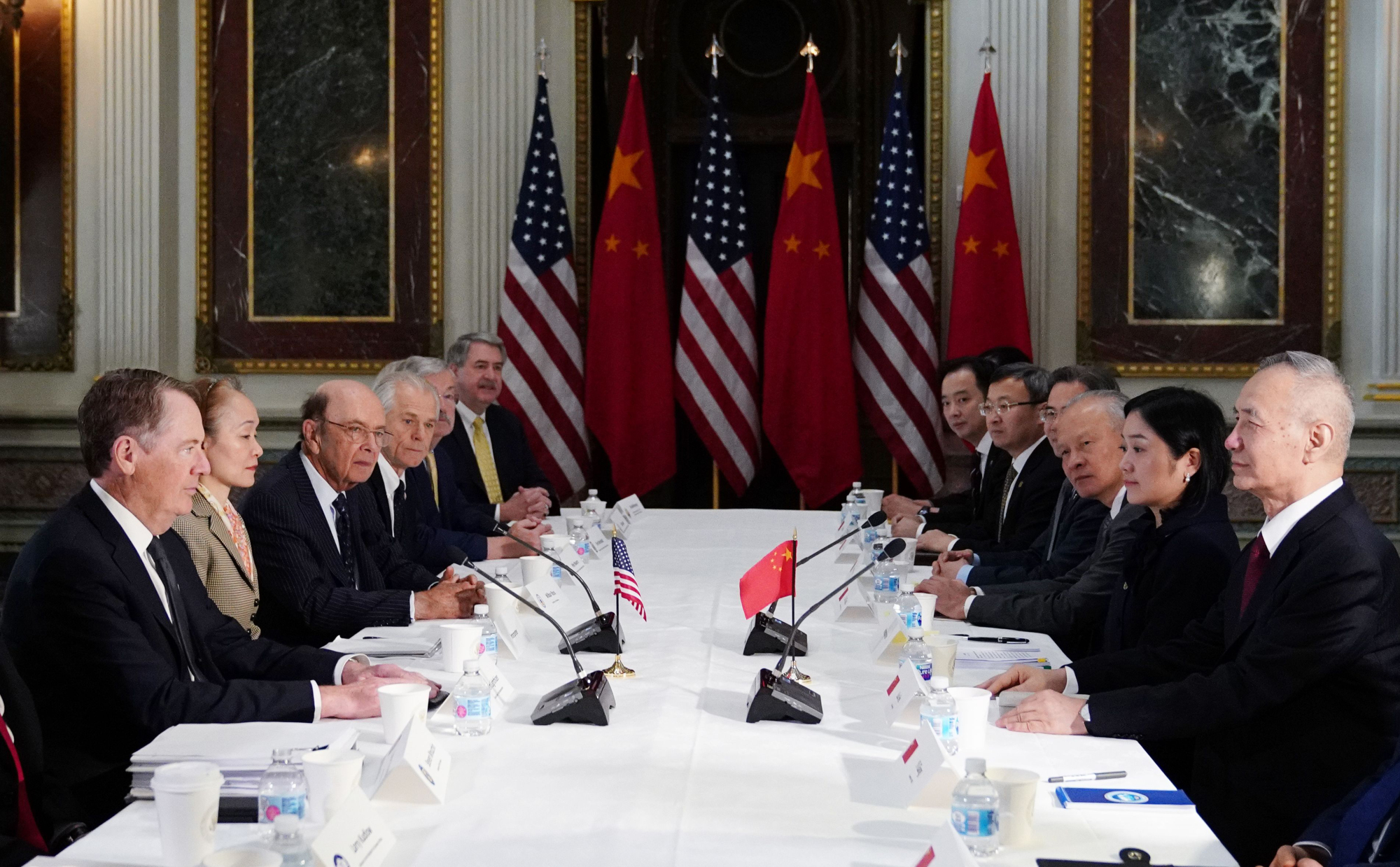As Chinese and American trade negotiators met in Washington through the weekend, observers were largely focused on the countries' economic disagreements, such as over China's subsidies to its state-owned enterprises. But to think that an agreement on trade would protect the world from a Sino-American cold war would be as premature as it would be naive.
Of course, a trade deal is highly desirable. The collapse of trade talks would trigger a new round of tariff hikes, driving down global equity prices and spurring businesses to move more of their activities out of China. Amid tit-for-tat tariffs, bilateral trade would plummet, and the unraveling of the U.S.-China economic relationship would accelerate, creating widespread uncertainty and higher costs.
But even if a comprehensive agreement is reached, that unraveling will continue, albeit in a more gradual and less costly way. The reason — which many investors and corporate executives have failed to recognize — is that the trade war is not fundamentally about trade at all; rather, it is a manifestation of the escalating strategic competition between the two powers.


















With your current subscription plan you can comment on stories. However, before writing your first comment, please create a display name in the Profile section of your subscriber account page.